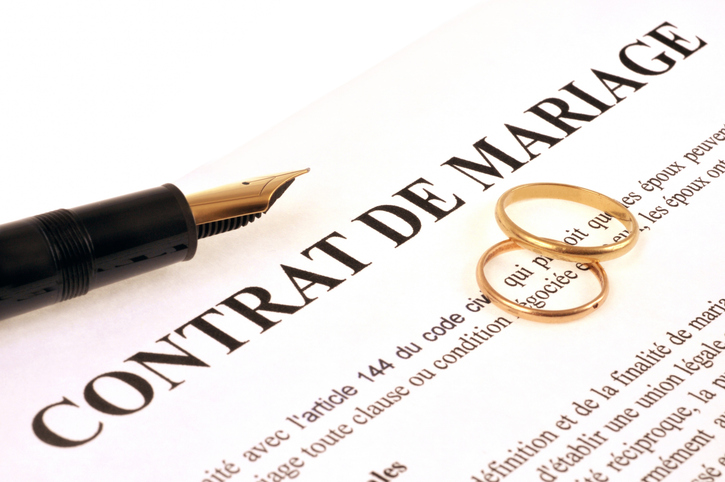x
Our website uses cookies. By continuing to use the site, you agree to our use of these cookies. To learn more about how we use the cookies and how you can manage them, please see our cookies policy.
France has remained a popular destination for foreign nationals to emigrate, work, and build a life in. As the UK’s closest neighbour, France provides many benefits to its migrants, such as a rich culture, membership in the European Union, and an excellent healthcare system. However, recent changes to France’s nationality laws have introduced more stringent requirements for foreign applicants, particularly those applying for citizenship by marriage to a French spouse.
This guide will explore how foreign nationals can apply for French citizenship by marriage to a French spouse, and how our cross-border immigration lawyers (Avocats) can assist.
Click on the links below to each section:
The advantages and common challenges of French citizenship.
Discover what is needed to apply for French citizenship through the marriage path.
A step-by-step guide to applying for French citizenship by marriage.
Browse the required documentation for the French citizenship application process.
Read the common queries on French citizenship by marriage.
French citizenship offers a wealth of advantages, not just for the individual but also for their family and professional life, including:
Since Brexit, when the UK left the European Union (EU), British nationals have lost certain privileges when operating in Europe.
As a French citizen, you gain the rights and privileges of EU citizenship. This includes visa-free travel across the Schengen Area, as well as the ability to live, work, and study in any EU member state. These benefits extend beyond travel convenience to opportunities in education, career development, and healthcare across Europe.
Becoming a French citizen can reinforce the bond with your French spouse and integrate you more closely into their family and culture. It demonstrates your long-term commitment to your shared life and fosters a sense of belonging in the French community.

French citizenship provides access to one of the world’s most efficient and inclusive healthcare systems, offering a range of benefits. Residents enjoy universal health coverage with shorter waiting times and high-quality services. Citizenship ensures lifelong access, regardless of employment or residency status.
French citizens enjoy streamlined access to business opportunities, investment incentives, and local support networks. Rather than a Golden Visa programme, France offers a Talent Passport Visa to help attract global talent and highly skilled workers to work and live in the country. Through this, foreign nationals can apply for French citizenship by naturalisation.
Find out more about how to apply for a Talent Passport Visa in France here.
Under the French Civil Code (Code Civil), foreign nationals can apply to become French citizens if they marry a French spouse. To qualify for French citizenship through marriage, applicants must meet specific eligibility criteria:
Applying to be a French citizen can be challenging, particularly with differing immigration laws that are subject to change at any time. Most recently, new French immigration laws came into effect in 2024, which have limited renewals of temporary residency permits and raised the required level of French language proficiency.
Seeking legal assistance is extremely beneficial and strongly recommended during the application process. International immigration lawyers will help guide you through the process, gather the required documentation, and proof your application; with a complete understanding of France’s nationality laws.
If you would like more information, request a callback with Giambrone & Partners’ French immigration lawyers (Avocats) here.
When applying for French citizenship by marriage, first, it is important that the required time period has passed which is four years. Applications must be submitted at the applicant's local préfecture if residing in France. For those living abroad, the application can be lodged at the French embassy or consulate in their home country. An application fee of €55 applies, which must be paid using fiscal tax stamps, known as timbres fiscaux. These stamps can be purchased online or at authorised outlets, such as tabacs or the préfectures themselves.
Read more about the cost of applying for French citizenship here.
Once you have submitted your citizenship application, French officials will conduct a thorough investigation into your life to ensure the authenticity of the marriage. This process often includes interviews with both you and your French spouse, designed to assess the legitimacy of the relationship as well as your level of integration into French society.
If your citizenship application is accepted, you can apply for your own French passport to travel freely amongst the Schengen area. This can be done at any town hall or French consulate and embassy.
For more information, read our guide on the application process for French citizenship for different pathways here.
You must prepare a comprehensive dossier of documents, including the application form, which must be in French or officially translated. These include:

Applicants often encounter issues such as incomplete documentation, difficulty obtaining language certificates, or scrutiny of the marital relationship.
Giambrone & Partners can provide you with professional legal support from our immigration lawyers (Advogados) and help you address these challenges when applying for French citizenship by marriage and ensure your application meets all requirements.
Contact the Giambrone & Partners’ French immigration lawyer here.
The application process typically takes around 12 months but can be more extensive depending on the complexity of the case and the workload at the préfecture or consulate.
Read our full guide on how long the French citizenship application process takes here.
A criminal record does not automatically disqualify you, but it may impact your application. Authorities will evaluate the nature and severity of the offence and whether it demonstrates a lack of integration into French society. In these cases, you may benefit by seeking legal assistance.
Provided your déclaration for French citizenship was submitted before divorce proceedings, you will retain your French citizenship even after separation from a French spouse. This is only an issue if you have a marriage-based visa (visa long-séjour temporaire vie privée et familiale) and were given residency based on your marriage.